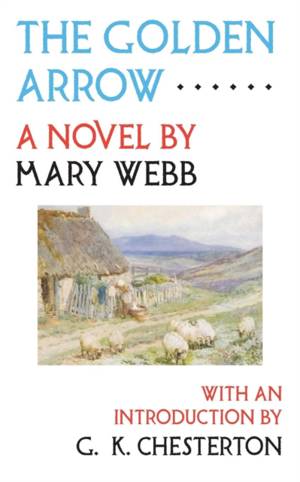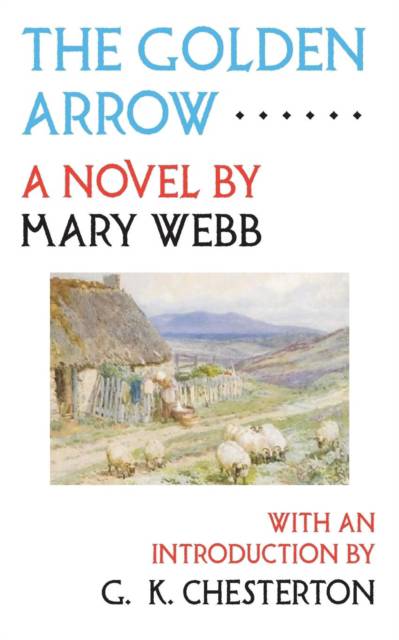
- Afhalen na 1 uur in een winkel met voorraad
- Gratis thuislevering in België vanaf € 30
- Ruim aanbod met 7 miljoen producten
- Afhalen na 1 uur in een winkel met voorraad
- Gratis thuislevering in België vanaf € 30
- Ruim aanbod met 7 miljoen producten
Zoeken
Omschrijving
"He knew now that neither the wilderness nor the dark weather, devils, nor the infinite void, mattered to him in the least. His love for Deborah made him impregnable to terror, gave him a grasp of truth deeper than reason. He had found the golden arrow, to his own agony and ennobling." At the very beginning of the twentieth century, Deborah Arden is living with her father John, mother Patty and younger brother Joe in their cottage high up on the exposed moorland hilltops of Shropshire. Their farm, High Leasowes, is given over to the sheep her father cares for with great tenderness. Their life is simple and elemental, and their concerns are those of the people of the land. Nature rules their world, and they respond by working alongside its almost unanswerable power, sometimes willingly, sometimes not. John works with fate, gently understanding all around him, be they supposedly bad or good, with the utmost care. Patty's argumentative practicality rankles against his easefulness, but she also works with nature, as busy midwife to all the women around the district. Joe is a straightforward lad, happy with a comfortable home, work in the fields that he knows, and the gorgeous blonde, Lily Huntbatch, from the village of Bitterley close by. Deborah is a lively intelligent young woman, gossiping with her best friend Lily, lovingly tending the animals with her father, helping her mother at home, and wondering about love. Then the family hears news that one of the young miners from the works up near the peaks has taken on the job of preacher at their local church. They all go to hear Stephen Southernwood the following Sunday, and most of the family and the local villagers are quietly inspired. For Deborah though, it is as if a bomb has dropped. Her naïve questions about love have been resoundingly answered. Now begins a journey of ecstasy, discovery and pain which will affect the whole Arden family and all around it, a wild journey where not only love is at stake, but life itself. Mary Webb is one of the most misunderstood of twentieth century writers. Dismissed as a rustic, pilloried as a romantic, she has been consistently undervalued. In fact, she writes mostly of the soul, expressing inherent truths in original and tender ways. Having an almost uncanny internal compass for the workings of the human mind, Webb presents people in all their contrariness and metaphysical wonder with strange and bewitching honesty. This honest tendency includes pioneering writing of physical desire and the erotic; on original publication in 1916, The Golden Arrow was regarded as very close to the bone. Mary Webb was born Mary Gladys Meredith in the village of Leighton in Shropshire in 1881. At the age of 20 she developed symptoms of Graves' disease, keeping her in somewhat ill-health for the rest of her life. She married Henry Bertram Law Webb, a teacher, in 1912. Her first novel The Golden Arrow, published in 1916, was followed by five others, as well as essays, poems and stories. Her fifth and most famous novel Precious Bane was awarded the Prix Femina. Mary Webb died still relatively uncelebrated in 1927 at the age of 46. Soon after her death the Prime Minister, Stanley Baldwin, spearheaded a campaign of recognition of her talent, gaining her posthumous bestseller status and cementing her reputation as writer giving a twist of modern genius to the classic tradition of Thomas Hardy and Emily Bronte.
Specificaties
Betrokkenen
- Auteur(s):
- Uitgeverij:
Inhoud
- Aantal bladzijden:
- 292
- Taal:
- Engels
Eigenschappen
- Productcode (EAN):
- 9780987367891
- Verschijningsdatum:
- 25/09/2013
- Uitvoering:
- Paperback
- Formaat:
- Trade paperback (VS)
- Afmetingen:
- 127 mm x 203 mm
- Gewicht:
- 290 g

Alleen bij Standaard Boekhandel
+ 37 punten op je klantenkaart van Standaard Boekhandel
Beoordelingen
We publiceren alleen reviews die voldoen aan de voorwaarden voor reviews. Bekijk onze voorwaarden voor reviews.











